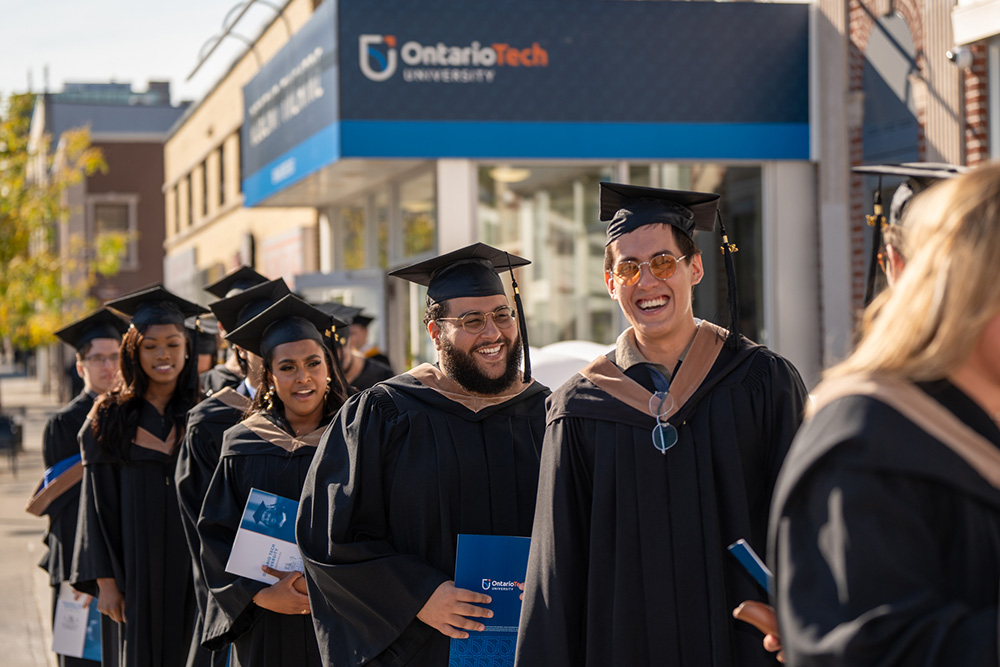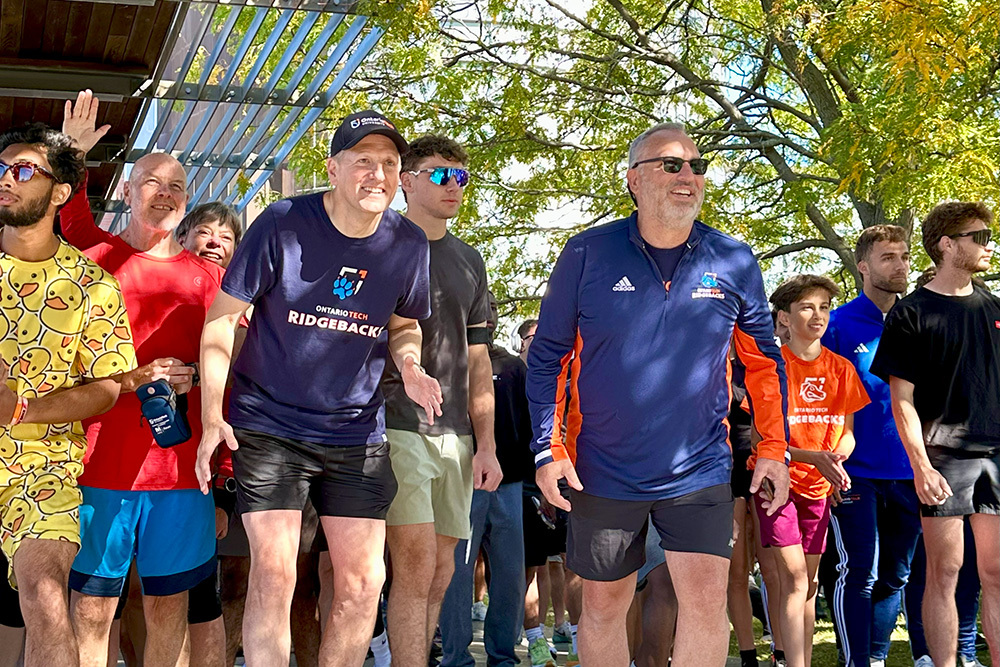From 3MT stage to research scientist: Bria Hughes-Small’s Ontario Tech academic journey
November 12, 2025

When Bria Hughes-Small signed up for Ontario Tech University’s Three Minute Thesis (3MT®) competition in 2024, she saw it as a chance to practice her presentation skills ahead of an academic conference. What she didn’t expect was that those three minutes would spark a career-shaping connection and lead to a full-time role in her field.
Today, Hughes-Small is a Research Scientist in the Research and Development department at Multi-Health Systems Inc. (MHS), a Toronto-based company specializing in psychological assessments. Her journey from graduate student to full-time researcher began with a work placement opportunity, an integral part of the student experience at Ontario Tech.
Her 3MT® presentation on neural development in children and adolescents captivated the audience and impressed the judges, especially Ontario Tech alum James Lant, now Director of Integrations and Implementations at MHS.
Lant, who received a Bachelor of Arts from the Faculty of Social Sciences and Humanities in 2011, recalls how memorable Bria’s presentation was.
“Every participant was impressive, but Bria’s ability to communicate her research so clearly and compellingly really stood out,” he says. “It was relevant, actionable, and showed she could translate complex science into real-world impact.”
“We connected after the competition,” Hughes-Small says. “He shared more about his work and his company, and I shared about my research. Later, when I was looking for a placement, I reached out to learn more about potential opportunities.”
That conversation led to a work placement opportunity, which was extended multiple times, and eventually became a full-time job offer.
For Hughes-Small, choosing a placement as part of her master’s program in Forensic Psychology was a strategic move.
“University is wonderful for building knowledge, but employers often look for hands-on experience,” she says. “I wanted something concrete I could point to, evidence that I had applied my learning in a real workplace.”
Now, Hughes-Small’s work focuses on enhancing psychological assessments related to childhood anxiety, an area closely aligned with her academic research.
“My thesis explored neural network development, so my current work is in the same wheelhouse,” she explains. “It’s rewarding to know that the changes I contribute to assessments may one day help clinicians identify children with anxiety earlier, so they can get the support they need.”
Lant says Hughes-Smalls’ story highlights the unique strengths of Ontario Tech.
“As a graduate myself, I know the university is deeply committed to giving students opportunities that connect learning to practice,” he says. “Bria is a perfect example of how those opportunities can lead directly to landing meaningful jobs.”
Looking back, Hughes-Small credits Ontario Tech’s emphasis on applied learning and experiential opportunities like 3MT® with helping her build the confidence and connections that shaped her career.
“My research supervisor Dr. Bobby Stojanski always said, ‘Do the thing.’ If you’re invited to present, do it. If there’s a competition, try it. Even if you’re uncertain, those experiences can lead to unexpected opportunities,” she says. “Networking can feel uncomfortable, but it’s so important. I wouldn’t be where I am without it.”


